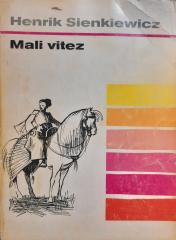
Quo vadis?
Roman Quo vadis povijesna je saga smještena u Rim za vrijeme vladavine cara Nerona. Djelo, napisano s epohalnom širinom, istražuje sukob između ranog kršćanstva i dekadentnog rimskog društva, uz ljubavnu priču u središtu.
Glavni lik, mladi rimski patricij Markus Vinicije, zaljubljuje se u Lygiju, kršćansku djevojku iz plemena Liga. Njihovu ljubav kompliciraju društvene razlike, Neronova tiranija i progoni kršćana. Vinicije, inicijalno vođen strastima i rimskim vrijednostima, postupno se mijenja pod utjecajem Lygijine vjere i kršćanskih načela, posebno kroz susrete s apostolima Petrom i Pavlom. Lygija, simbol čistoće i vjere, bježi od rimskog luksuza i Neronova dvora, gdje je požuda Poppeje, careve ljubavnice, dodatno ugrožava.
Roman kulminira u dramatičnim događajima: Neron optužuje kršćane za veliki požar Rima, što dovodi do njihovih mučenja u areni. Lygija je osuđena na smrt, ali Vinicije, uz pomoć kršćana, spašava je. Neronova vladavina propada, a kršćanstvo se uzdiže kao nova moralna snaga. Sienkiewicz majstorski prikazuje raskoš i okrutnost Rima, suprotstavljajući je kršćanskoj poniznosti i nadi. Roman završava pobjedom ljubavi i vjere, uz Petrovo pitanje „Quo vadis, Domine?“ (Kamo ideš, Gospodine?), simbolizirajući duhovnu transformaciju.
Djelo je remek-djelo svjetske književnosti, nagrađeno Nobelovom nagradom 1905., i slavi snagu duha u vremenima progona.
Jedan primjerak je u ponudi





